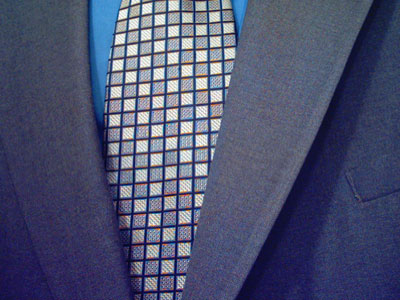Wrinkled clothing. Scuffed shoes. Too much makeup or cologne.
These are just a few of the dress and grooming faux pas that can botch a job seeker’s first impression with employers — a moment that is critical in determining whether a job seeker secures an offer.
In a recent Harris Poll survey, 50 percent of employers said they know within the first five minutes of an interview if a candidate is a good fit for a position.
Job seekers who make poor first impressions will have a tough time changing employers’ minds and convincing them they are the best candidate to hire.
“Job seekers may have exceptional work experience and all the right skills, but if they show up to interviews underdressed or ill-groomed, their odds of success will be stacked against them,” explained Linda Hein, senior vice president of JIST Career Solutions. “It’s essential for job seekers to put their best foot forward in interviews. That starts with dressing and grooming in ways that meet employers’ expectations.”
JIST’s new video, Dress and Groom for Career Success, demystifies how employers expect candidates to present themselves during interviews. The program acknowledges that standards vary across industries, but gives job seekers popular guidelines for establishing a professional appearance.
[clickToTweet tweet=”Don’t let your attire sabotaging your job interview. #jobsearch” quote=”Don’t let your attire sabotaging your job interview. #jobsearch”]
For men, appropriate interview attire includes:
- A conservative business suit in a basic color—usually navy blue, dark gray, or black
- A collared, button-down shirt—generally white or light blue
- A conservative tie that complements the shirt and suit—avoid bright colors or distracting prints
- A brown or black belt
- Dark socks to match the pants
- Brown or black business shoes to match the belt
- A briefcase or portfolio to hold copies of a resume and other important documents
For women, appropriate interview attire includes
- A suit with pants or a knee-length skirt in a conservative color — usually navy blue, dark gray, or black
- A conservative blouse or light sweater — avoid bright colors or distracting prints
- Closed-toe dress shoes, such as pumps — avoid flashy high heels and backless or platform shoes
- Neutral, sheer hosiery that complements the suit or skirt
- Minimal jewelry, makeup, and hair accessories
- A briefcase or portfolio to hold copies of a resume and other important documents
Thresette Briggs, president of Performance 3, LLC, and one of the experts featured in Dress and Groom for Career Success, said, “The difference between interview attire and everyday attire is simply this: You want to dress a little bit above what you’ve seen at that organization. If you happen to know people who work there or if you happen to have seen people there, then look at how they dress every day and try to do just a cut above.”
Candidates who look polished and professional give employers assurance about many of the skills they are looking for, such as a candidate’s ability to come prepared to work every day, make favorable impressions with co-workers or customers, and fit in with company culture.
[clickToTweet tweet=”Candidates who look polished and professional give employers assurance about their skills. ” quote=”Candidates who look polished and professional give employers assurance about their skills. “]
Briggs added, “The relationship between dress, grooming, and self-confidence is simply that when we look good, we feel good. We’re more confident and we come across as such.”
Join Dana Manciagli’s Job Search Master Class® right now and immediately access the most comprehensive job search system currently available!



